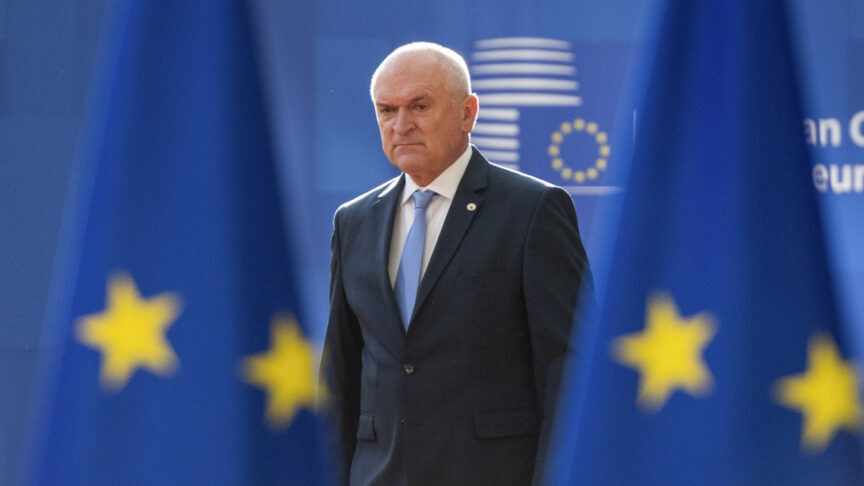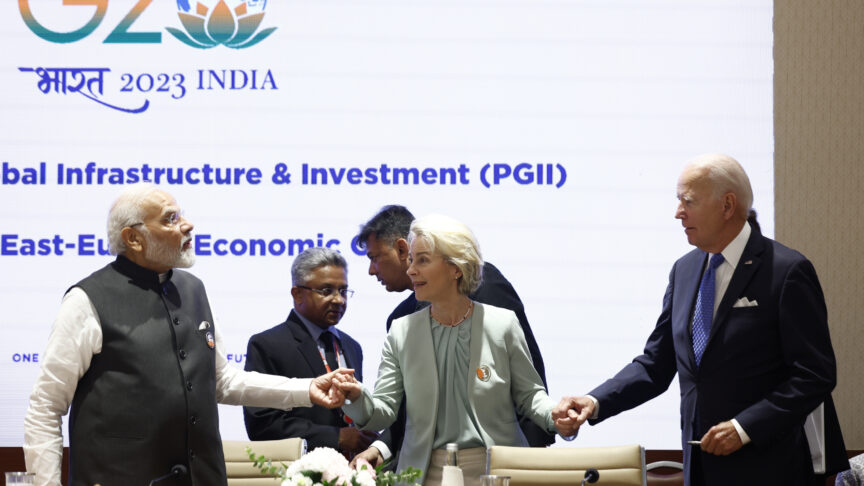After Lisbon, what next?
NATO leaders are meeting in Lisbon to approve a new strategic blueprint aimed at enhancing the security of Europe. But what about managing security within Europe? Who is responsible for that, and how should it be organised?
As NATO leaders arrive in Lisbon to approve the Alliance’s new strategic blueprint aimed at enhancing security of Europe, questions remain about who will manage the security inside Europe, and how.
The allies will decide on the future of NATO’s operations and partnerships, agree the next steps for the ISAF mission in Afghanistan, work out ways of strengthening the NATO-Russia Council, and discuss whether and how to build an alliance-wide missile defence shield. The strategic concept also seeks to calm NATO’s eastern members, offering ‘reassurance measures’ for the new allies. But while the Lisbon summit answers many questions about the future role of NATO and addresses external threats that Europe is currently facing (such as terrorism or spread of nuclear weapons), it provides little guidance about how to solve problems Europe encounters on its own continent.
Over the last decade, the weaknesses in European security were exposed on multiple occasions: neither NATO nor the Organisation for Security and Cooperation in Europe could prevent wars in Kosovo and Georgia. The so-called frozen conflicts in Nagorno Karabakh, Transnistria or Cyprus continue to threaten Europe’s stability and economic prosperity. Having been a major European power for more than half a century, US attention has shifted to Iran and further east, to Beijing. Although US military presence remains the key security guarantee against a major war between European states, the current administration rightly expects that Europeans deal with the rest of the continent’s problems. Moreover, once the key components of stability in Europe, EU and NATO enlargements have effectively stalled. With exceptions like Croatia’s coming EU accession, further enlargements are unlikely to occur for a number of years to come. Some of this effect can be traced back to the decline in US interest in the region, but political elites in countries such as Ukraine or Bosnia are also to blame: they are often more interested in staying in power than in all-encompassing transformation that is required for EU accession in particular.
It was Russia which first said that the security order in Europe no longer worked and, two years ago, called for its de jure revision (though ironically, it was also Moscow which de facto challenged this order by the launching a war against Georgia in 2008). Russia’s proposals suggest replacing NATO and OSCE with a new security pact that would provide every country in the Euro-Atlantic area – including Russia- with a right to veto other countries’ choices of security alliances. The proposal was an almost perfect copy of the 19th century concert of powers, and failed to find support in Europe. In addition, the European security picture has become more complicated as Turkey’s regional role increased and Ankara has turned into a more stubborn ally. Although Turkey is a NATO member and still hopes to join the EU, its recent statements on Iran or Sudan run directly against the EU/US line.
So, not only is Europe once again becoming multipolar, the continent also faces new problems and lacks mechanisms to solve them. The Lisbon summit will offer little guidance for Europeans in this matter: the Alliance was established to protect the Allies from external threats, not to solve tensions between them. The debate about security within Europe will be answered elsewhere. But to do so, both Russia and Turkey need to be engaged. They hold the keys to solving the frozen conflicts in Eastern Europe and the Caucasus and can also help solve the stalemate in Bosnia. It is in the European Union’s interest to lead the negotiations. The EU’s security philosophy rests on its preference for non-military approaches to security – but that presumes that a rules-based system operates in Europe, which minimises the need for force. The EU stands to gain the most from formulating a better system for reducing tensions inside Europe. The NATO summit is a good way to engage Russia on global security issues that threaten Europe. It is now up to the European Union to follow up by launching discussions with Russia and Turkey that would enable a multipolar Europe to live in peace.
The European Council on Foreign Relations does not take collective positions. ECFR publications only represent the views of their individual authors.


